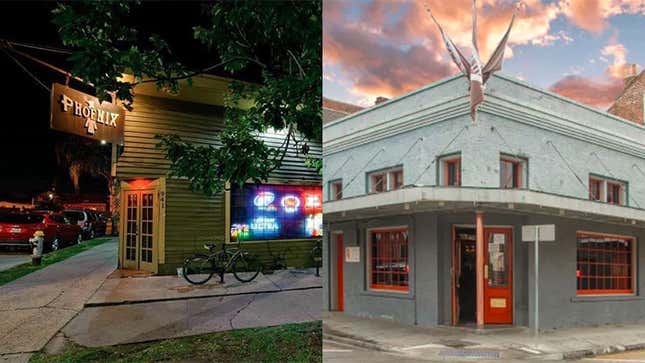Did Discrimination Against Women Lead to a Sex Crackdown in New Orleans Gay Bars?
Latest

Two New Orleans leather bars known for their cruising scenes have been hit in recent months with charges, fines, and a shutdown in sexual activity (which is barred in public venues by Louisiana State Laws). Some have assumed that the impositions on Phoenix and Rawhide 2010 have been politically motivated, perhaps the result of a homophobic witch hunt (“an attack on one of us is an attack on all us,” read a message posted by Phoenix management on the bar’s Facebook in February), but a recent article in New Orleans LGBTQ magazine Ambush paints a more nuanced picture of investigations arising from direct complaints that are the result of community in-fighting and sexual discrimination.
Journalist Frank Perez’s impressively deep dive into the issues at hand hypothesizes that the investigations were kicked off as a result of disgruntlement after women were turned away at the door of Rawhide. Perez reports that Rawhide, the first of the two bars to be investigated and fined, was reported to the New Orleans Police Department on September 6, 2018, in a complaint that claimed the establishment allowed “lewd public sex acts,” sex work, and drug use. That was days after last year’s Southern Decadence weekend, a notoriously libidinous annual multi-day celebration in New Orleans. That weekend found multiple instances of women being turned away from Rawhide. In the early hours of September 2 (a Sunday), a woman who was not allowed entry was heard shouting outside the bar by patrons, “I will call and have this place shut down.”
Then, on Sunday afternoon, a group of three women weren’t allowed entry when they tried to attend a leather and kink demonstration the bar was holding. The event was put up by Crescent City Leathermen and had been advertised as open to all. One of the members in that group, whose name I won’t print here in an attempt to spare her future Google results, wrote on Facebook that she had been denied entry “because of my genitals, which are covered by clothes by the way. The only excuse I was given was ‘Well…it’s Southern Decadence’ which makes no sense at all.” In a follow-up message to former Rawhide manager John Breaux, the woman, a member of the leather community, said she had formerly performed a rope demonstration at Rawhide and “not once did my vagina or breasts affect a single one of the patrons.” (This woman is not the assumed whistleblower—Breaux theorized that it was one of her friends.)
Louisana Office of Alcohol and Tobacco Control Deputy Commissioner Ernest P. Leiger, Jr., would not provide the name of the person who filed the initial complaint (the NOPD referred the case to the ATC, which took over the investigation). Perez was unable to confirm exactly who lodged the complaint, so connecting it to the incidents of women being turned away is informed speculation (Perez admits as much in his piece).
-

-

-

-

-

-

-

-

-

-

-

-

-

-

-

-

-

-

-

-

-

-

-

-

-

-

-

-

-

-

-

-

-

-

-

-

-

-

-

-








































